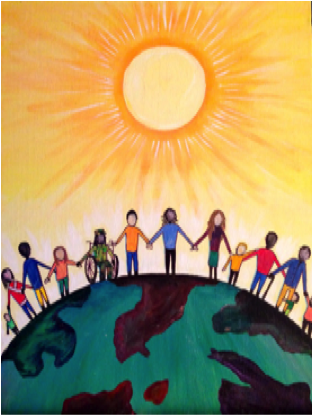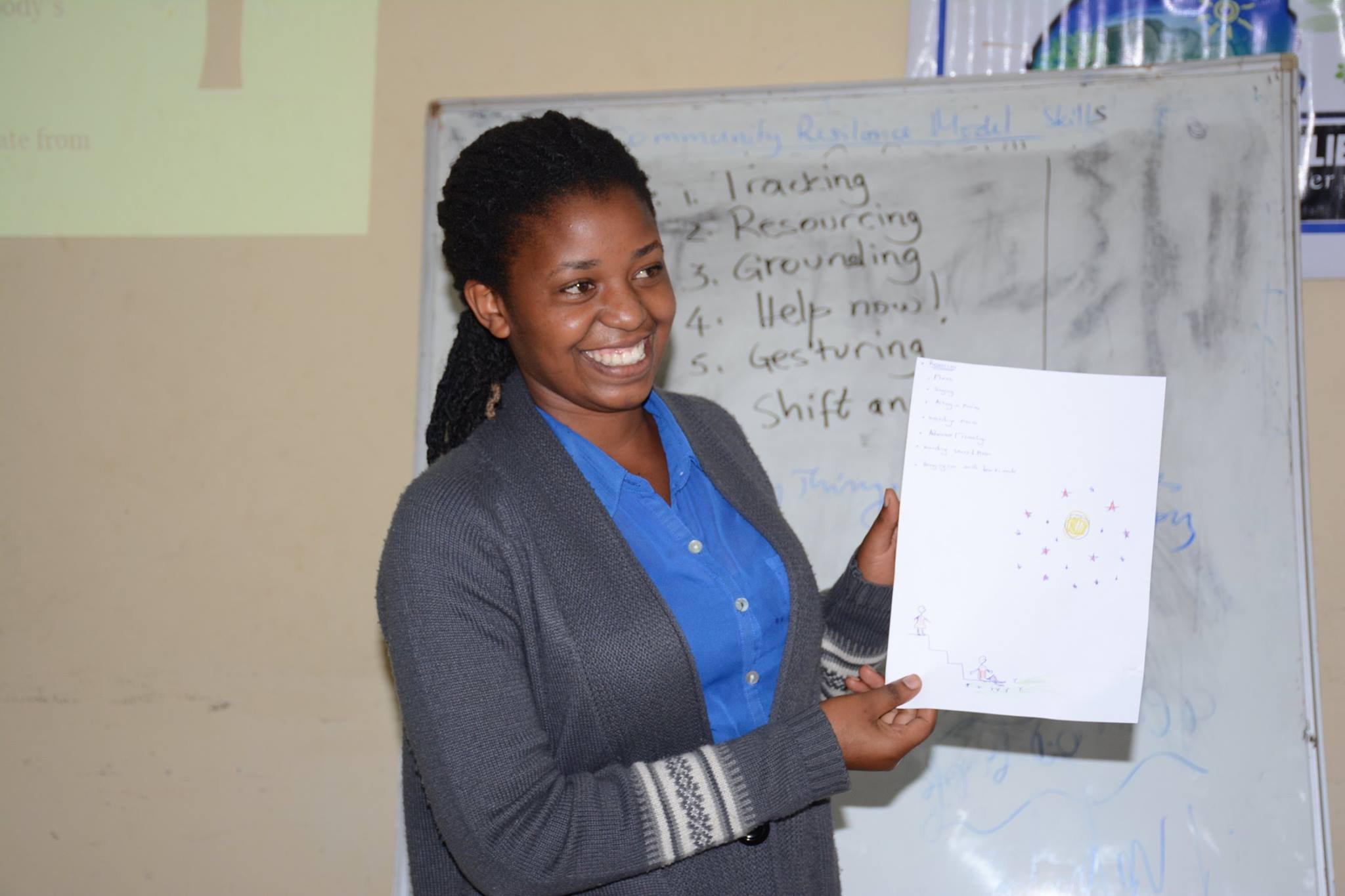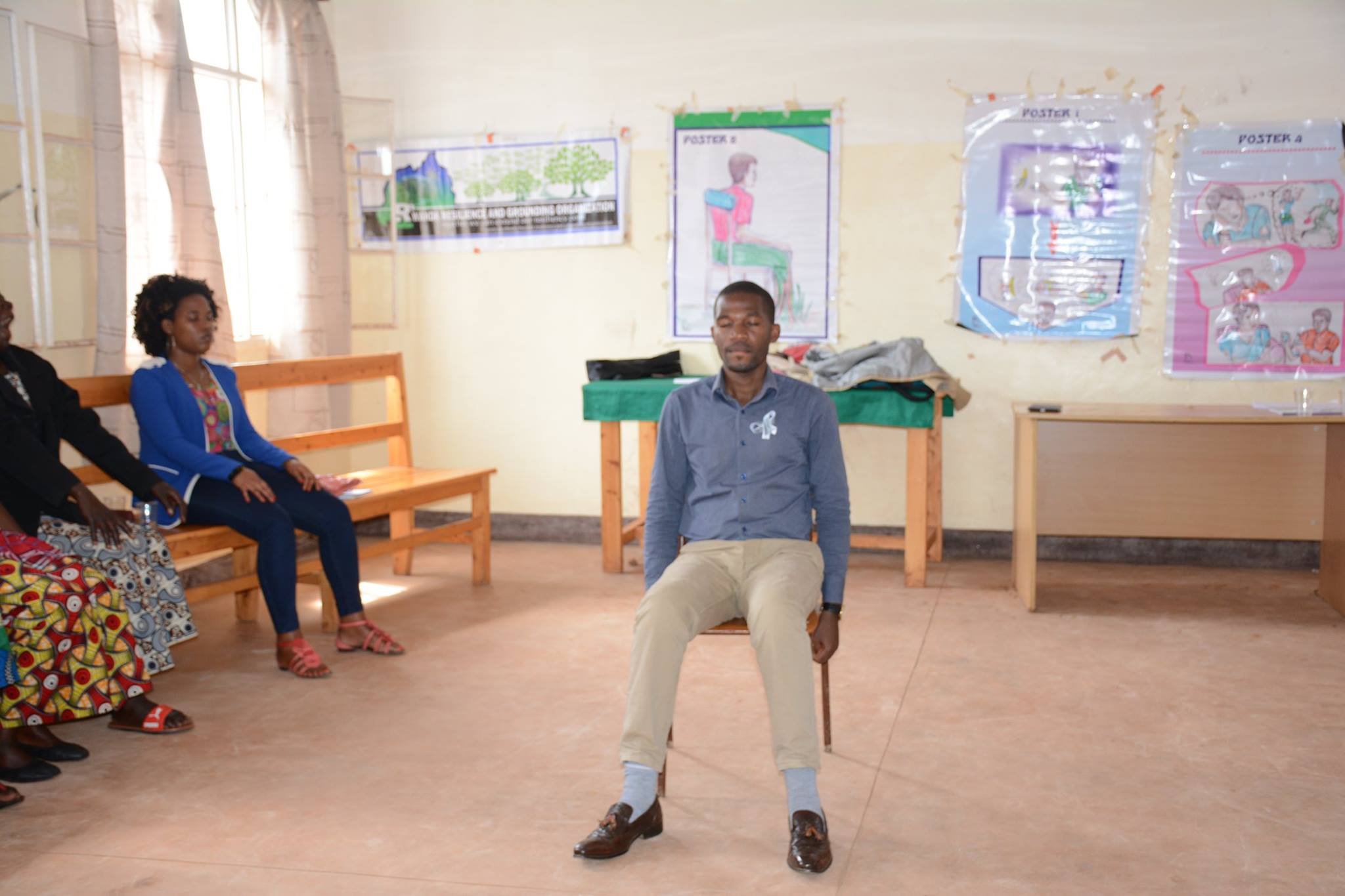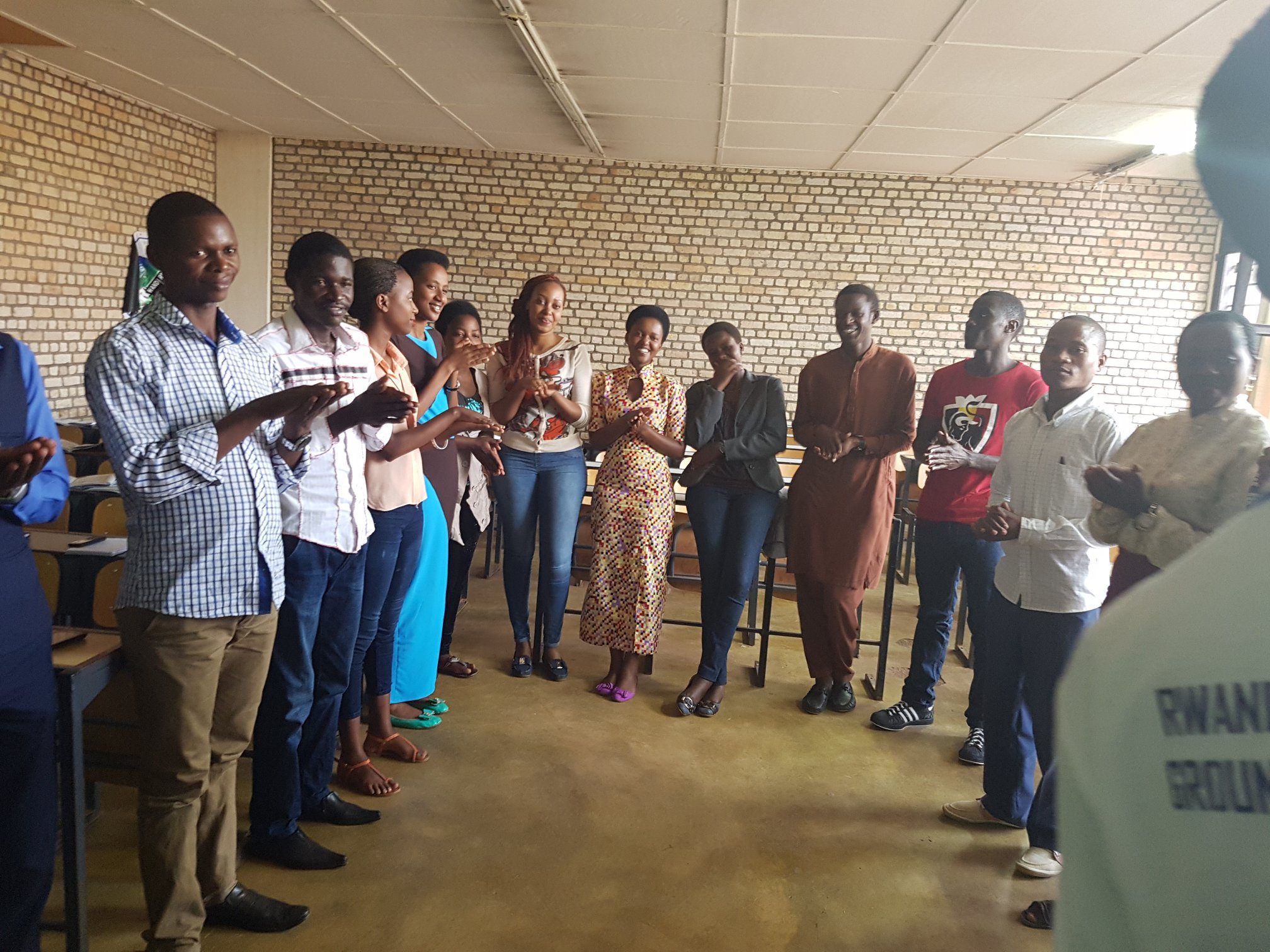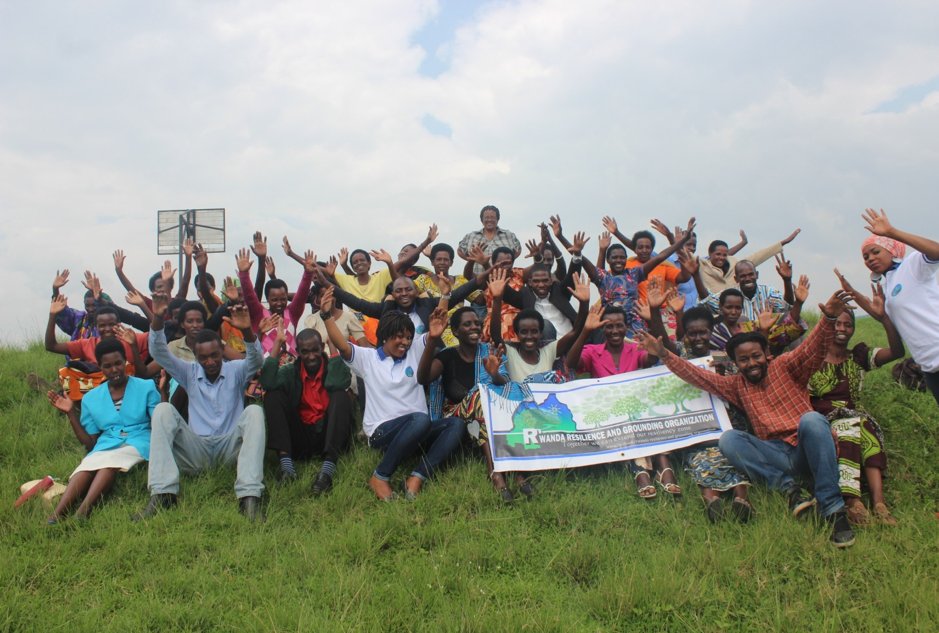Rwanda (2021)
Participant shares her Resource and practices resource intensification.
April 7th marks the start of the commemoration of the Rwandan Genocide of 1994 when members of the Hutu ethnic majority in the east-central African nation of Rwanda murdered as many as 800,000 people, mostly of the Tutsi minority.
Samuel Habimana is the Co-Founder and Executive Director of Rwanda Resilience and Grounding Organization (RRGO). He was trained as a Community Resiliency Model Teacher in 2015. Since his training, he has pioneered teaching wellness skills to communities of genocide survivors.
Samuel Habimana, CRM Teacher, demonstrates the Grounding skill for the group.
Rwanda Resilience and Grounding Organization (RRGO) is a non-profit organization established in 2015 in response to the persistent effects of the 100 Day Genocide against the Tutsi in 1994.
With the use of trainings, psychotherapies, and counseling, RRGO’s vision is to help Rwandese heal from trauma and other psychological stressors with the purpose of extending their resilient zones, increasing awareness of well-being in order for communities to live in harmony.
The group practices a Tracking exercise.
This year, RRGO plans to teach the Community Resiliency Model (CRM)® skills to 165 genocide survivors, 180 ex-prisoners, 17 teachers, and 14 local leaders in multiple training cohorts over the course of 10 months. Through the CRM trainings, RRGO hopes to strengthen and create and sustain a peaceful Rwandan society and build resilience to community trauma.
Recently, RRGO facilitated the first CRM Training of the project. Over the course of two weeks, 30 participants participated in Community Resiliency Model (CRM)® Workshops.
The following are success stories from the project so far:
“I am ex-prisoners of genocide and I had a shame for what I did during the genocide. I was leaving in self-stigma and a lot of relapse (bad dreaming) for what I saw and did during genocide however since trainings, I was able to relax and bring back my confidence.”
-Anonymous Participant
“Before attending this five-day of trainings, I was very depressed and even I don’t want anyone to know more about me. I felt alone. I was so happy nowadays that everyone is living in his home because I don’t like to meet people but these trainings of CRM helps me a lot.”
-Anonymous Participant
“I was living in bad condition and I become hopeless and I never think anyone can have empathy for me. Before I join these trainings, I did not know who we will be together but as we continue with course and practice, I start having positive feeling.”
-Anonymous Participant
After the trainings, the participants self-initiated a Resiliency Club composed of genocide survivors and ex-prisoners. They will meet every Friday for three weeks with the goal of organizing resiliency conversations and sharing the impact of CRM skills on their daily living.
